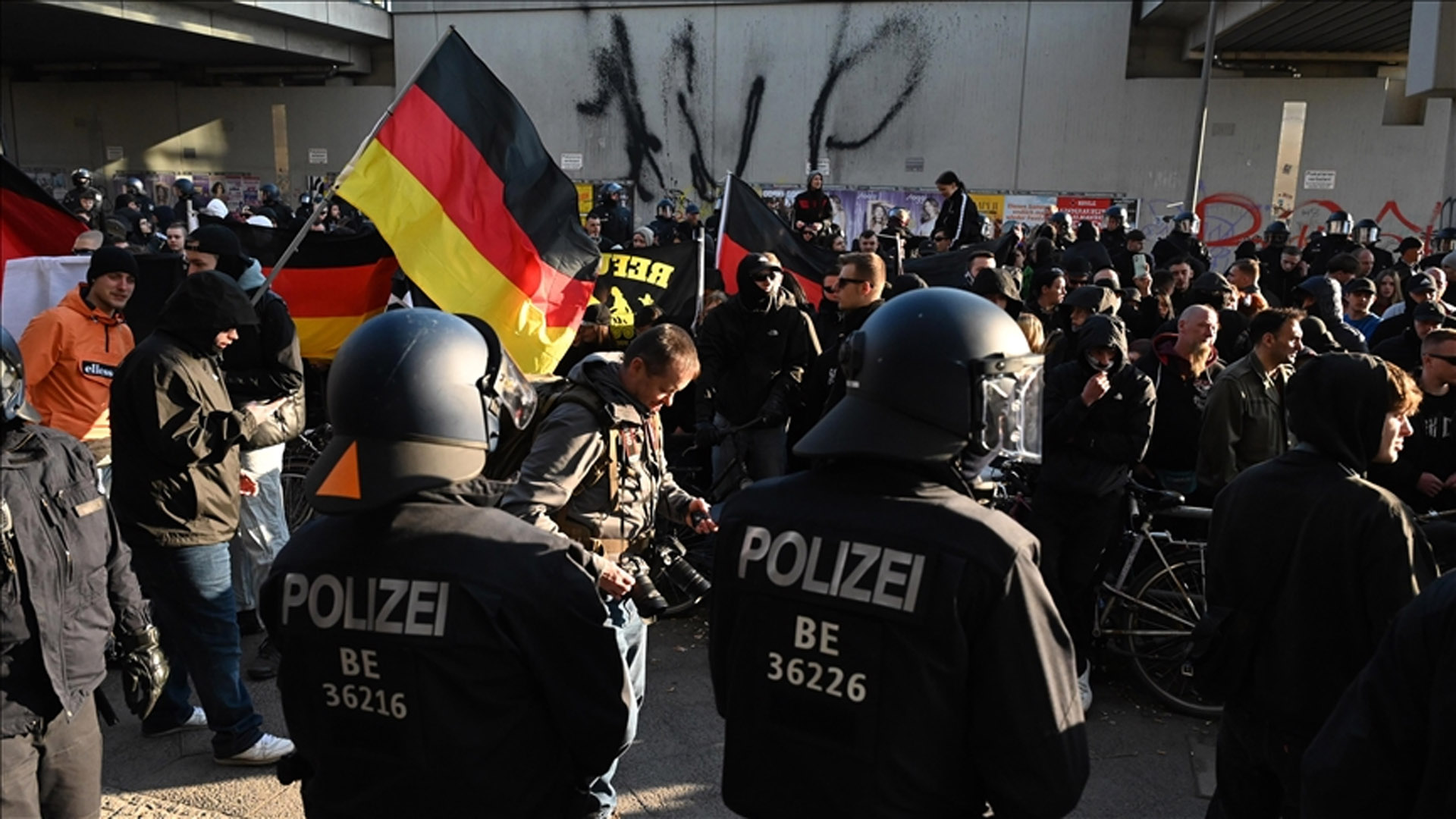
Elham Asaad Buaras
Over 3,000 incidents were documented nationwide, with Berlin alone seeing a nearly 70% increase as violent assaults and discrimination surge across the country
Anti-Muslim attacks and incidents of discrimination reached an alarming new record in Germany in 2024, with more than 3,000 documented cases nationwide, rights group CLAIM announced this week. The surge represents a dramatic escalation in both the frequency and severity of attacks against Muslim communities across the country.
The organization documented 3,080 anti-Muslim incidents in 2024, representing a dramatic 60% increase from the 1,926 cases reported in 2023. The incidents averaged more than eight cases per day throughout the year, painting a disturbing picture of widespread hostility toward Muslim communities. The annual report revealed an alarming escalation in the severity of attacks, including two homicides, 198 cases of physical assault—three of which were classified as attempted murder—122 cases of property damage, four arsons, and 259 other offences, including robbery and extortion. More than 70 attacks on mosques were documented, while Muslim markets and restaurants also became targets of threats and violence.
“Anti-Muslim racism is not a marginal phenomenon. It extends from the streets to classrooms, from waiting rooms to city halls. It operates in government offices, in the housing market, in comment sections—and it’s becoming more brutal,” CLAIM experts said in their report.
The capital city exemplified the nationwide trend, with Berlin alone experiencing a surge of nearly 70% in anti-Muslim attacks and discrimination, reaching a record 644 incidents in 2024. Speaking at a press conference in Berlin, CLAIM’s co-director Rima Hanano described the figures as deeply troubling.
“The new annual report paints an alarming picture for our city,” Hanano said. “We documented 644 anti-Muslim attacks and discrimination cases in 2024, marking an increase of nearly 70% compared to the previous year. This means almost two anti-Muslim incidents every day here in Berlin.”
Women bore the brunt of anti-Muslim hostility both nationally and in Berlin specifically. Nationwide, women accounted for 71% of individual victims, while in Berlin they represented nearly two-thirds (64%) of cases where the victim’s gender was known. The report highlighted that visibly Muslim women face widespread racist violence, often occurring in public spaces.
Perhaps most disturbing was the targeting of minors. “What’s really disturbing is that even children and youth are being attacked on the streets, both verbally and physically,” Hanano noted. Children have been subjected to both verbal and physical attacks, with many incidents occurring when they were accompanied by their mothers in public. While violent assaults garnered attention, most documented cases involved structural discrimination, particularly in schools, the housing sector, and workplaces. This systemic discrimination has created an environment where Muslims face barriers in multiple aspects of daily life, from education to employment to finding housing.
The surge in anti-Muslim racism coincided with heightened Middle East tensions and inflammatory public discourse surrounding Muslim communities. Similar spikes were observed following terrorist incidents in Germany, as public discourse often portrayed Muslims as security threats, fostering an environment of suspicion and discrimination.
“Muslims were repeatedly placed under general suspicion and portrayed as a security problem,” Hanano explained. “Some people feel encouraged and legitimised by such debates and discourse.”
The report highlighted how media coverage and political debates centred on security concerns, which frequently mischaracterize Islam as a threat and Muslims as security risks have led to concrete consequences for the safety of Muslim individuals in Germany.
Germany is home to nearly 5.5 million Muslims — Western Europe’s second-largest Muslim population after France—with a national population of 84 million. The far-right party Alternative for Germany (AfD), now the country’s largest opposition force in parliament, has consistently campaigned on anti-immigration and anti-Muslim platforms. Rights groups and political analysts warn that such political currents have contributed to a normalization of hostility towards Muslim communities.
Both reports emphasized that the documented figures likely represent only “the tip of the iceberg,” as many anti-Muslim incidents go unreported. This underreporting occurs due to several factors: inadequate reporting and counselling systems, victims’ distrust of authorities, limited expertise in identifying anti-Muslim racism, and victims’ fear, trauma, or lack of trust in institutions.
CLAIM called for urgent political and institutional action to address what they characterised as a structural issue that requires systematic intervention. “It is not enough to treat these attacks as isolated incidents,” Hanano said. “What we need is a comprehensive political strategy to tackle anti-Muslim racism at every level—from legislation to education, and from law enforcement to the media.”
The rights organization emphasized that anti-Muslim racism extends far beyond street-level violence, operating within institutional frameworks and requiring coordinated responses across all levels of German society to effectively combat the rising tide of discrimination and violence facing Muslim communities.
Photo: On March 22, 2025, around 800 far-right demonstrators marched from Ostkreuz Station toward central Berlin, with police maintaining a strong presence throughout.